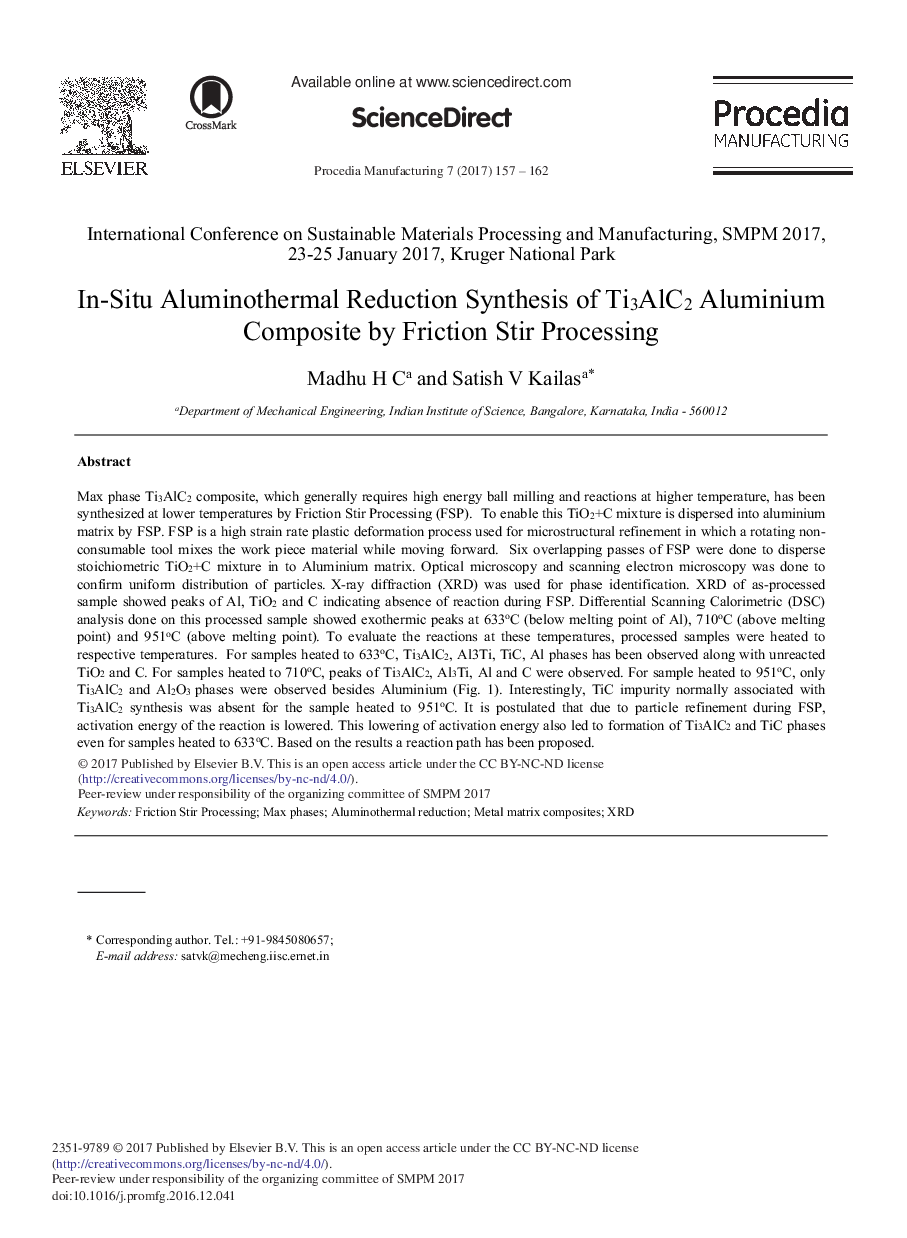| Article ID | Journal | Published Year | Pages | File Type |
|---|---|---|---|---|
| 5129153 | Procedia Manufacturing | 2017 | 6 Pages |
Max phase Ti3AlC2 composite, which generally requires high energy ball milling and reactions at higher temperature, has been synthesized at lower temperatures by Friction Stir Processing (FSP). To enable this TiO2+C mixture is dispersed into aluminium matrix by FSP. FSP is a high strain rate plastic deformation process used for microstructural refinement in which a rotating non-consumable tool mixes the work piece material while moving forward. Six overlapping passes of FSP were done to disperse stoichiometric TiO2+C mixture in to Aluminium matrix. Optical microscopy and scanning electron microscopy was done to confirm uniform distribution of particles. X-ray diffraction (XRD) was used for phase identification. XRD of as-processed sample showed peaks of Al, TiO2 and C indicating absence of reaction during FSP. Differential Scanning Calorimetric (DSC) analysis done on this processed sample showed exothermic peaks at 633oC (below melting point of Al), 710oC (above melting point) and 951oC (above melting point). To evaluate the reactions at these temperatures, processed samples were heated to respective temperatures. For samples heated to 633oC, Ti3AlC2, Al3Ti, TiC, Al phases has been observed along with unreacted TiO2 and C. For samples heated to 710oC, peaks of Ti3AlC2, Al3Ti, Al and C were observed. For sample heated to 951oC, only Ti3AlC2 and Al2O3 phases were observed besides Aluminium (Fig. 1). Interestingly, TiC impurity normally associated with Ti3AlC2 synthesis was absent for the sample heated to 951oC. It is postulated that due to particle refinement during FSP, activation energy of the reaction is lowered. This lowering of activation energy also led to formation of Ti3AlC2 and TiC phases even for samples heated to 633oC. Based on the results a reaction path has been proposed.
